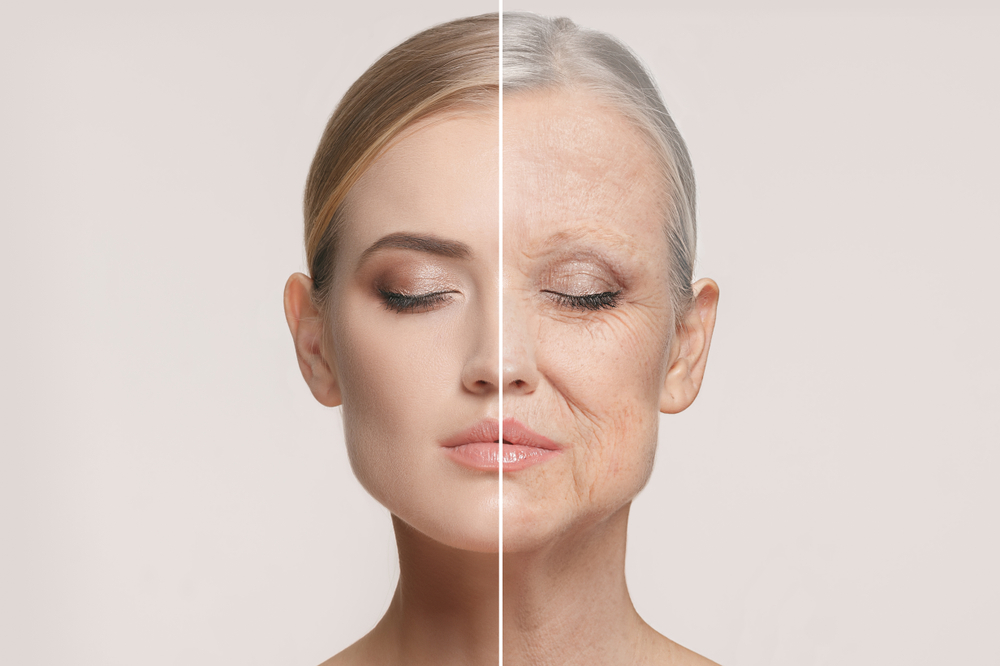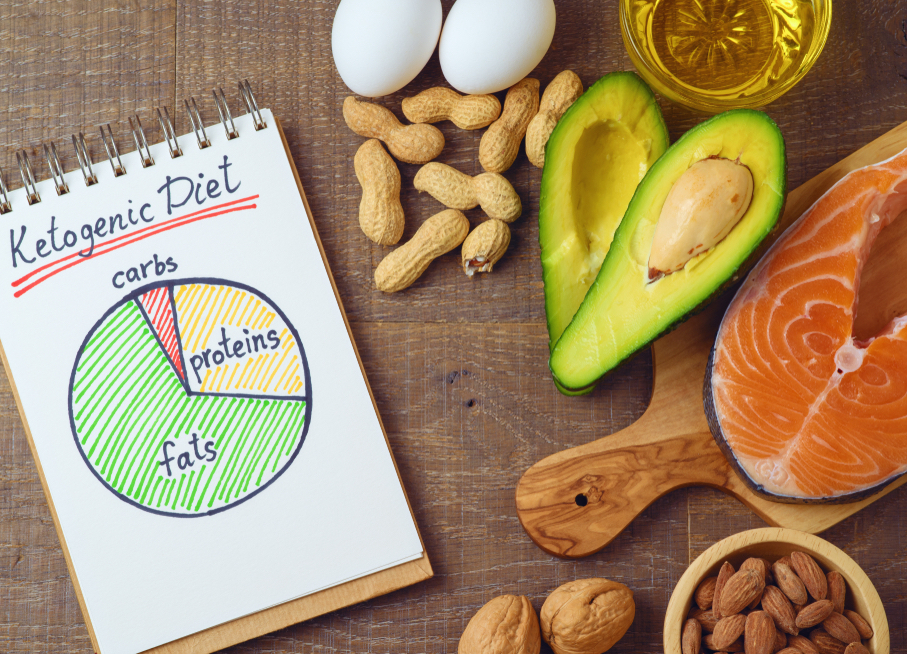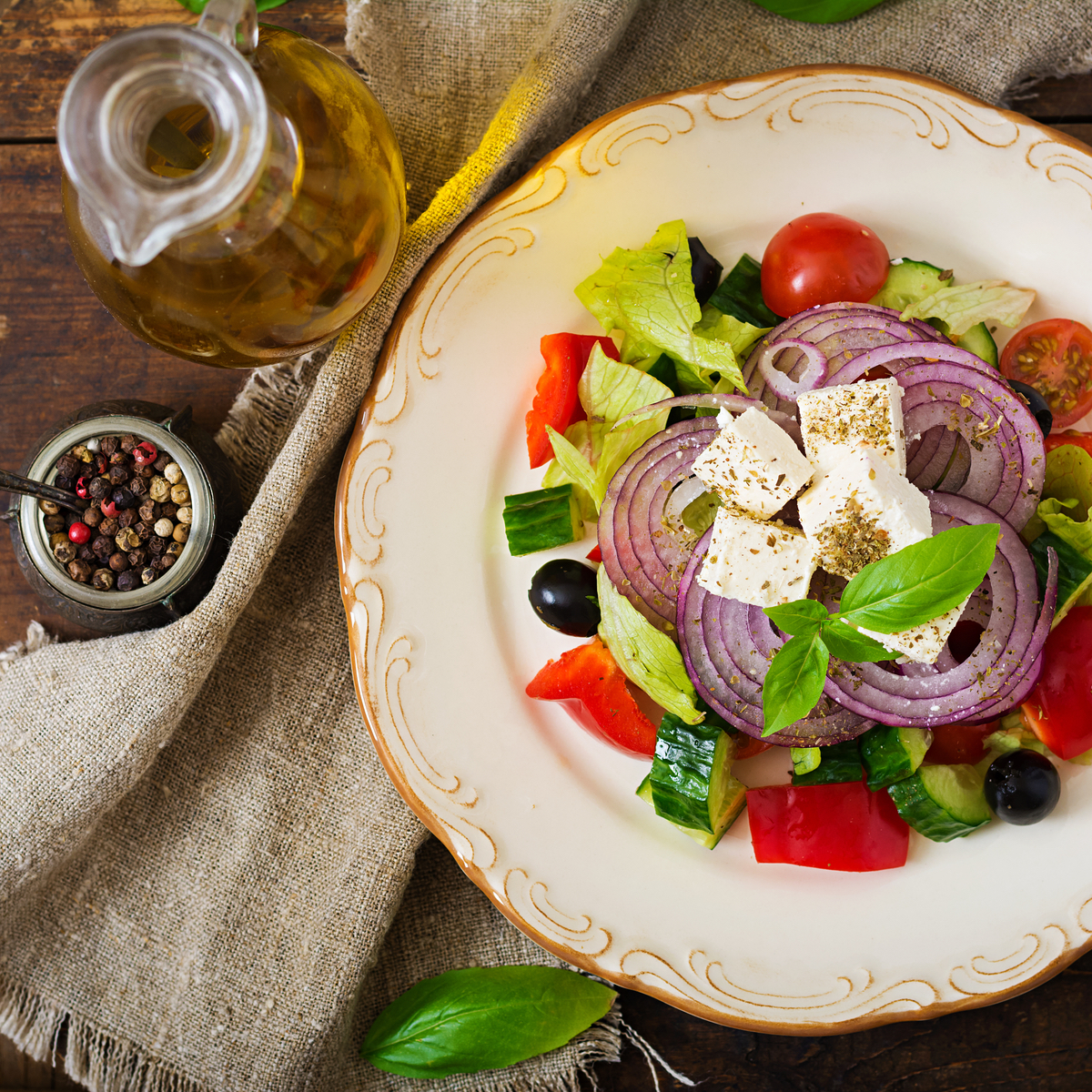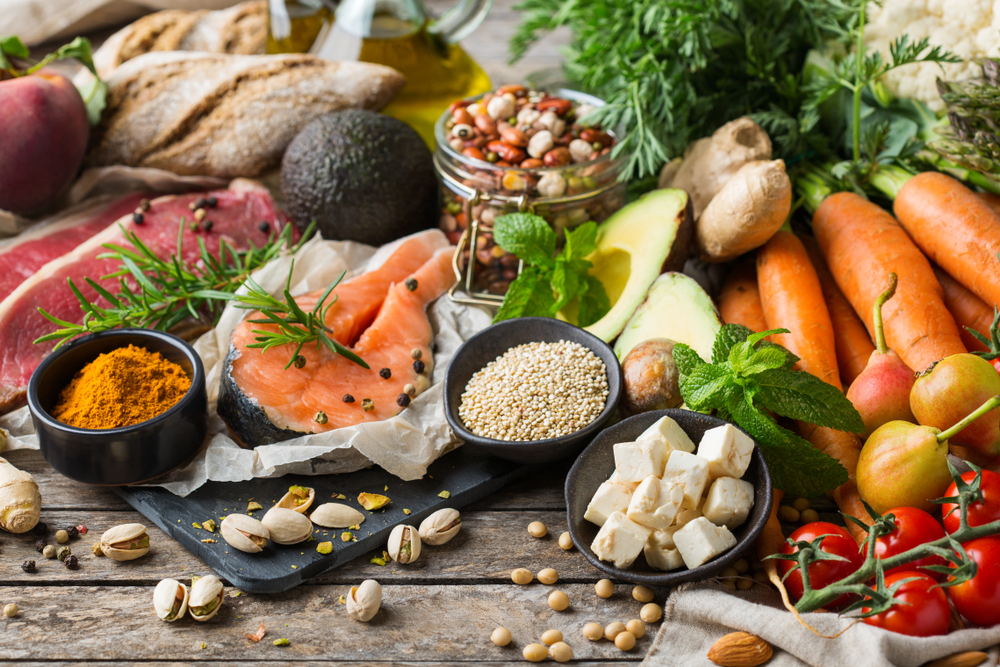It’s no secret that what you eat has an impact on your health, so it’s no surprise that your diet affects your skin as well. The Mediterranean diet is considered one of the best diet choices available because it impacts the body in so many positive ways – it can help improve brain and memory, eyesight, heart health, metabolism, blood sugar, and reduces inflammation which can cause multiple critical health issues.
By eating well-rounded Mediterranean meals chock full of foods for healthy skin, you can see a healthier glow in your skin and reduce the effects of aging over time.
Table of Contents
Why Does Your Skin “Age” Over Time?
Different Kinds of Skin Aging Are Brought on By Environment and Natural Processes
Other Ways Our Skin is Damaged Over Time
How Do These Changes Affect Skin’s Appearance?
How the Mediterranean Diet Fights Against Inflammation and Free Radicals
Preventing Skin Aging Through Anti-Aging Foods on the Mediterranean Diet
The Bottom Line
Why Does Your Skin “Age” Over Time?
Skin is an organ, just like your heart or brain. Like every organ, skin is a complex matrix of living cells and structural components. Unfortunately, none of these pieces are designed to last forever.
Your skin cells are continuously working – they are trying to protect against damage from things like UV damage and pollution, prevent water loss, and repairing and producing new structural components like collagen. They do a great job! But over many years, issues and slowdown are inevitable. Eventually, like all things, skin degenerates and starts to show signs of aging including wrinkling, discoloration, thinning, and general weakening.
Different Kinds of Skin Aging Are Brought on By Environment and Natural Processes
There are two main sources for your skin’s degenerative changes – normal chronological aging and photoaging, or exposure to UV light from the sun.
Chronological Aging
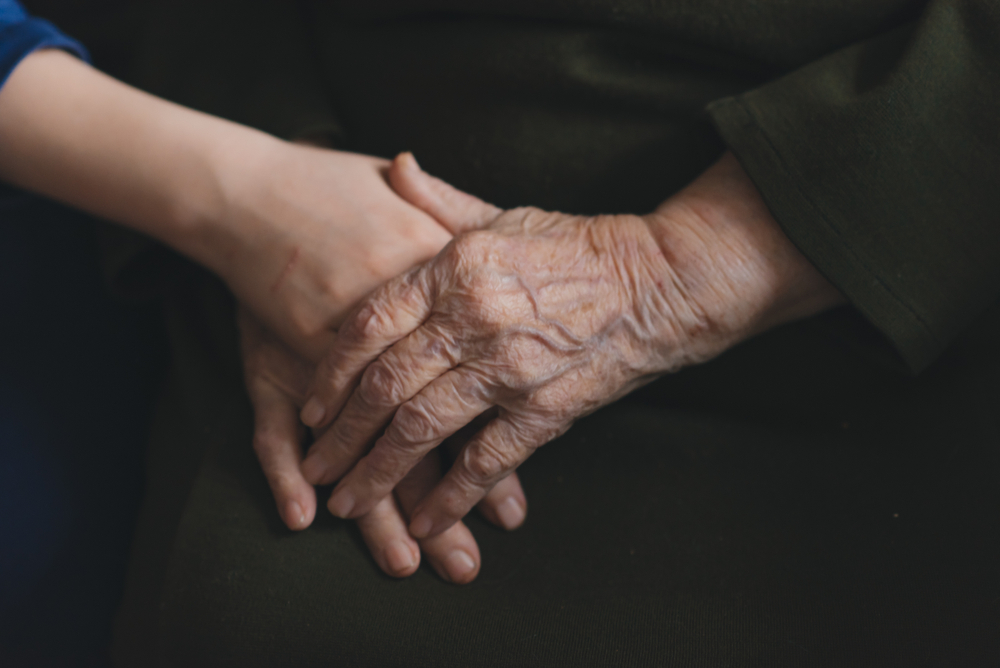
Normal chronological aging includes the natural lifecycle of cells (or cell “turnover”), byproduct buildup, and just general lack-of-immortality of any living tissue. Over time, the ability of the stem cells in your skin to produce replacement cells declines. Also, the cells which produce collagen (called fibroblasts) become less effective as we age. Collagen is the framework our skin is built on, and problems with maintaining it are what cause skin to lose elasticity and sag. This is what causes wrinkles and generally “looser” looking skin.
Photoaging

Photoaging is a special case for skin and makes it a unique case for aging skin: Chronic sun exposure is a difficult problem for your living tissues to deal with. The UV rays from the sun can damage cells and structural components directly, leading to similar issues as above but often in a more extreme way. Reports have found that 80-90% of age-related changes are actually due to external factors like UV rays, and not age itself.
Protecting yourself from UV rays is, of course, an important component of skin health. So using things like protective layers and sunscreen on a regular basis will make a huge difference as you age.
However, it is difficult to be 100% effective at UV protection. Also, as mentioned, chronological aging exerts its will upon your tissues regardless of UV exposure. Therefore, diet is such an important opportunity to protect how your skin looks and functions
Other Ways Our Skin is Damaged Over Time
There is a daily battle going on in your skin between Reactive Oxygen Species (ROS), AKA oxidants or “free radicals,” and antioxidants. It is normal for your cells to produce free radicals. They are important for normal day to day cellular function. However, these molecules are destructive if not carefully controlled, so our cells produce antioxidants to combat them.
Smoking is a huge risk factor for skin aging because it breaks down the collagen in your skin and causes slow blood circulation, both which damage your skin’s elasticity. Stop smoking!
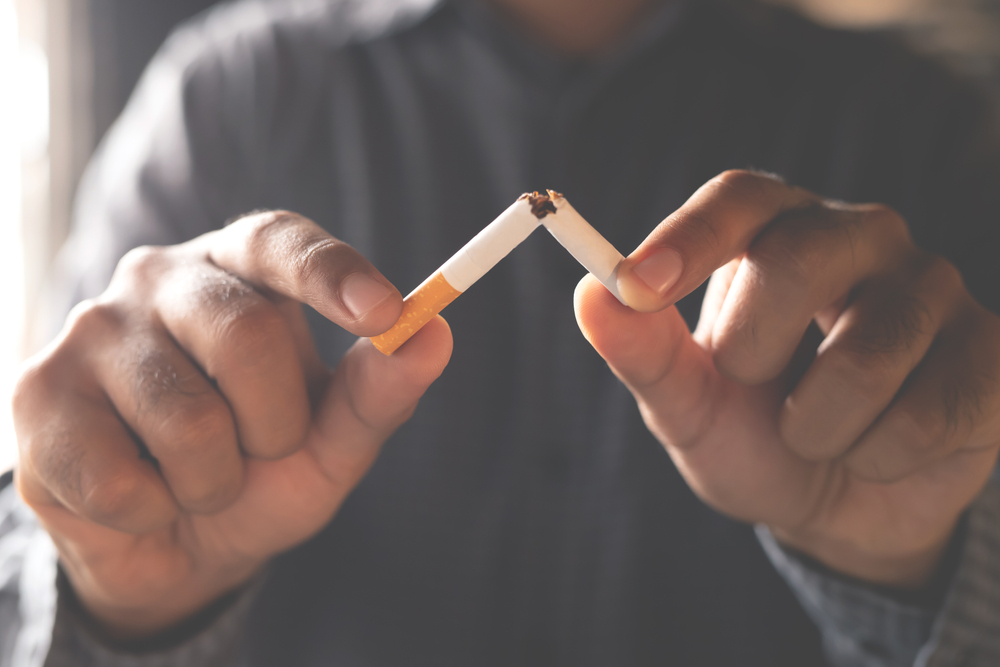
The balance between production of ROS and antioxidants is key for the health of our tissues. Excess free radicals can damage DNA, cell walls, structural components (like collagen), and even directly shorten our molecular “biological clocks” known as telomeres. These types of cellular mechanisms are generally known as inflammation, which free radicals are a major (but not the only) cause of.
Unfortunately, UV rays (among other things) cause a huge uptick in production of free radicals in skin. Additionally, as we age, our ability to produce our own antioxidants decreases. This combination leads to an imbalance and skin damage. In order to restore this balance and protect your skin it is critical to eat foods that are high in antioxidants.
Inflammation is Another Suspect in Skin Aging
The ways in which both chronological aging and UV rays damage skin tissues is very complex, but it is important to note that skin damage is likely complicated by inflammation. Inflammation is a complicated topic too! A simple way to describe it a combination of harmful products released from damaged or dying cells, as well as byproducts of cells “breathing” (or using oxygen in their daily functions).
Inflammation occurs due to immune system responses, allergic reactions, and infections. While this can be caused by disorders and other illnesses, sometimes it happens on a molecular level due to diet. Pollution, exposure to chemicals, and eating foods like red meat, lard, soda, fried foods, and refined carbohydrates are all environmental factors that cause or worsen inflammation.
How Do These Changes Affect Skin’s Appearance?
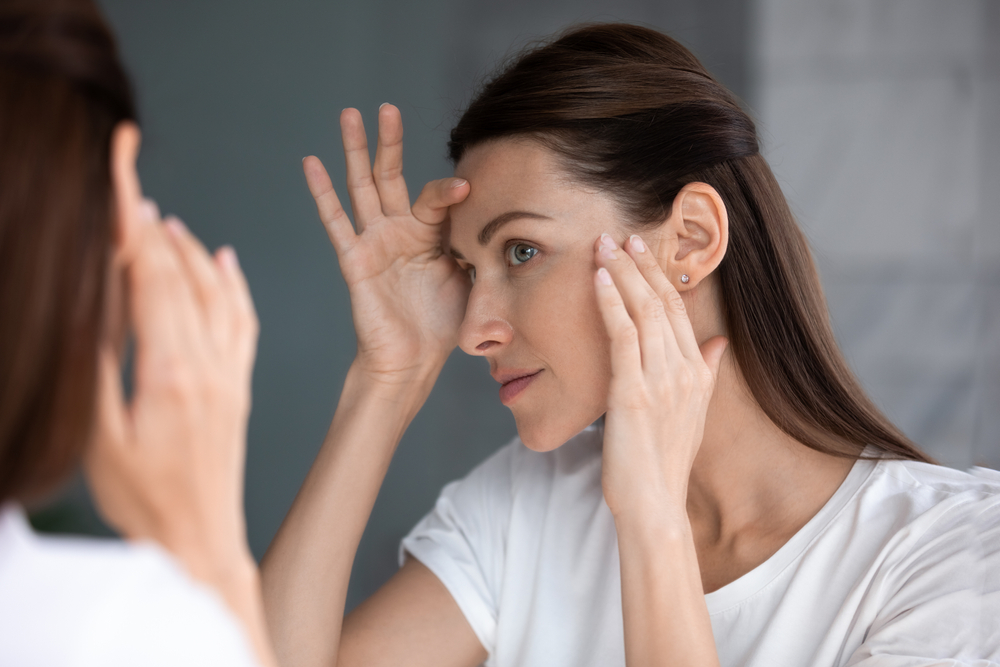
All the above results in changes to the way our skin looks and functions. Our skin gets thinner as do the underlying layers of subcutaneous fat, leading skin to appear less full and vibrant.
Your skin also loses its elasticity and structural integrity as collagen weakens. This causes skin to sag and droop. This is responsible for some of the most noticeable changes like wrinkles and bags under our eyes. Your skin becomes less effective at retaining moisture leading to dry skin.
The pigment producing cells (melanocytes) decrease in number, but increase in size, leading to spotty pigmentation. This is because some areas lose their pigmentation, while others develop large, hyperactive melanocytes causing dark pigmentation known as lentigos (AKA “age spots” or “liver spots”). Your skin also becomes a less effective barrier. Cuts occur more readily and then heal slower, and bruises form more easily
In general, degeneration of the skin results in undesirable changes to both the appearance and function of skin. Therefore, it becomes critical that we find ways to slow down this degeneration. This is where diet can play a major role.
How the Mediterranean Diet Fights Against Inflammation and Free Radicals
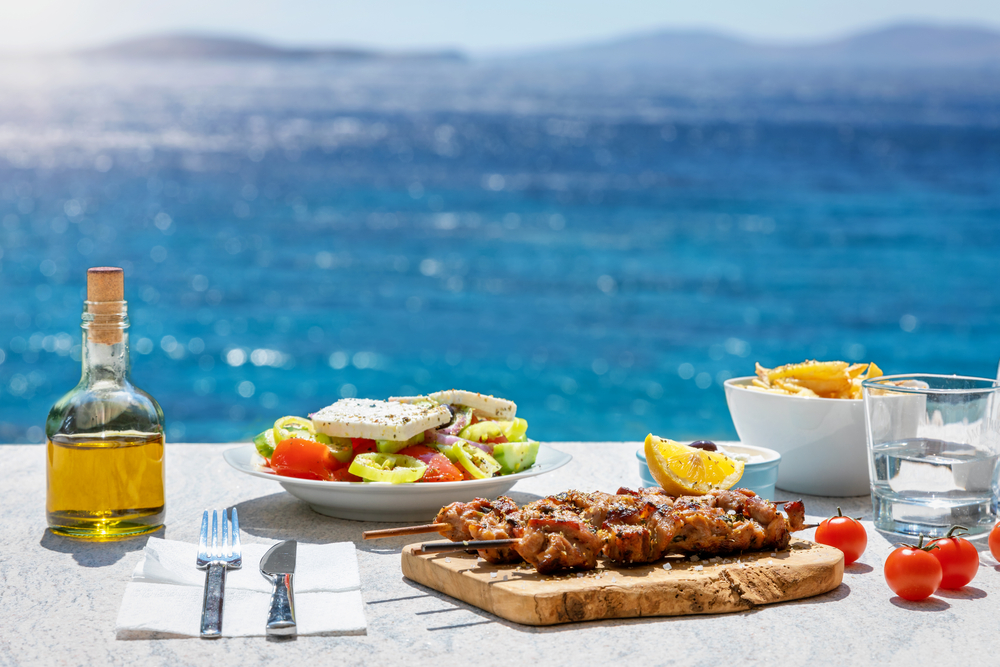
Luckily, to fight against inflammation and other natural aging processes is the Mediterranean Diet, which is extremely high in antioxidants. It is packed with things like polyphenols, flavonoids, carotenoids, and polyunsaturated fatty acids (like Omega 3s), and many more. These types of antioxidant molecules can soak up free radicals like a sponge and protect your skin from harmful effects. The high levels of antioxidants are a core feature of the foods in the Mediterranean Diet, and is believed to be a central reason behind the diet’s many health benefits. This means this diet doesn’t just help your skin. Reducing free radicals has been shown to prevent things like heart disease, diabetes, and dementia too.
As mentioned, inflammation’s destructive cellular processes can come from other sources than just reactive oxygen species. Your immune system, which is generally responsible for the cells which provide inflammation, can be activated in others (including functional ones like when you have an illness). And diet can either be a cause of — or a solution to — inflammation generally.
Preventing Skin Aging Through Anti-Aging Foods on the Mediterranean Diet
What you eat can affect your skin health in two main ways: By providing important nutrients and reducing inflammation or oxidation (damage to cells over time due to the byproducts of natural bodily processes like metabolization and immune function). The Mediterranean diet fills your plate with foods for healthy skin that are also highly nutritious like fish, fruits, vegetables, legumes, and whole grains. By following a Mediterranean diet meal plan, you will ensure that your body receives adequate levels of the essential nutrients you need to maintain your skin health, and more.
The Mediterranean diet emphasizes a lot of whole foods (aka minimally processed foods that are unaltered with other ingredients), whole grains, and healthy fats which do wonders for the health of your skin.
Eat lots of: Vegetables, fruits, nuts and seeds, legumes, lentils, whole grains, fish, and extra virgin olive oil.
Eat in moderation: Poultry, eggs, cheese, and yogurt.
Avoid eating: Red meats, added sugars, processed foods, refined grains and oils.
Nutrition is Key to Slowing Down the Aging Process of Your Skin
Skin relies on a broad array of vitamins, minerals, and other nutrients in order to function optimally. When deprived of these nutrients, degenerative changes happen even faster. It makes sense, then, that if your diet is not highly nutritious, then your skin will age faster over time. A few examples of nutrients that are essential for skin health (and what anti-aging foods have them!) are
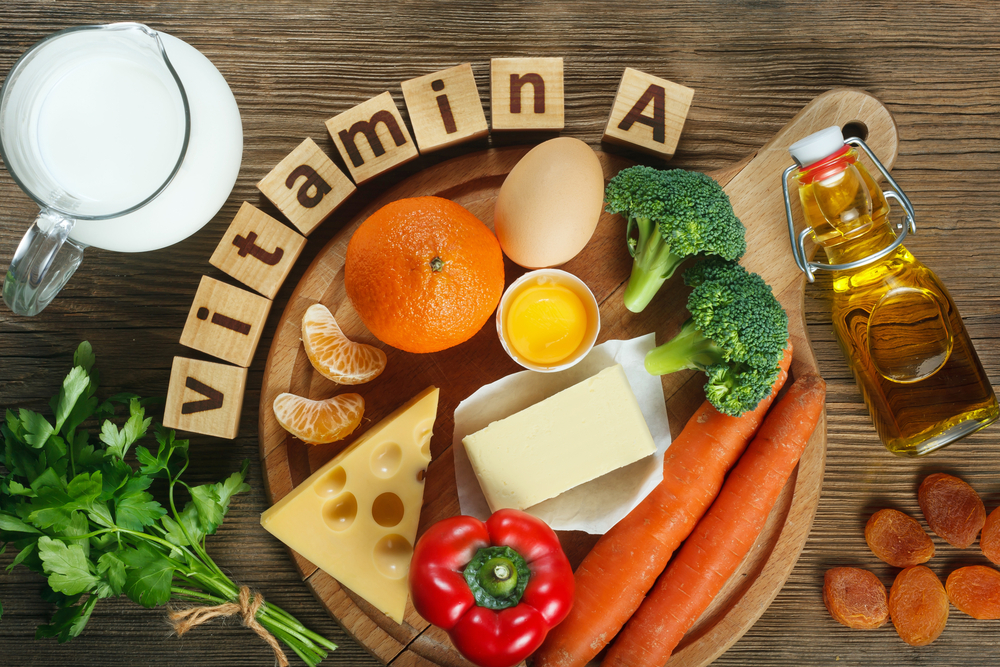
- Vitamin A: Promotes health function of keratinocytes (basic skin cells) and fibroblasts (the cells which produce collagen. Also helps protect the skin against harmful UV rays.
Foods high in Vitamin A: Leafy greens, tomatoes, bell peppers, fish oils, eggs, mangoes
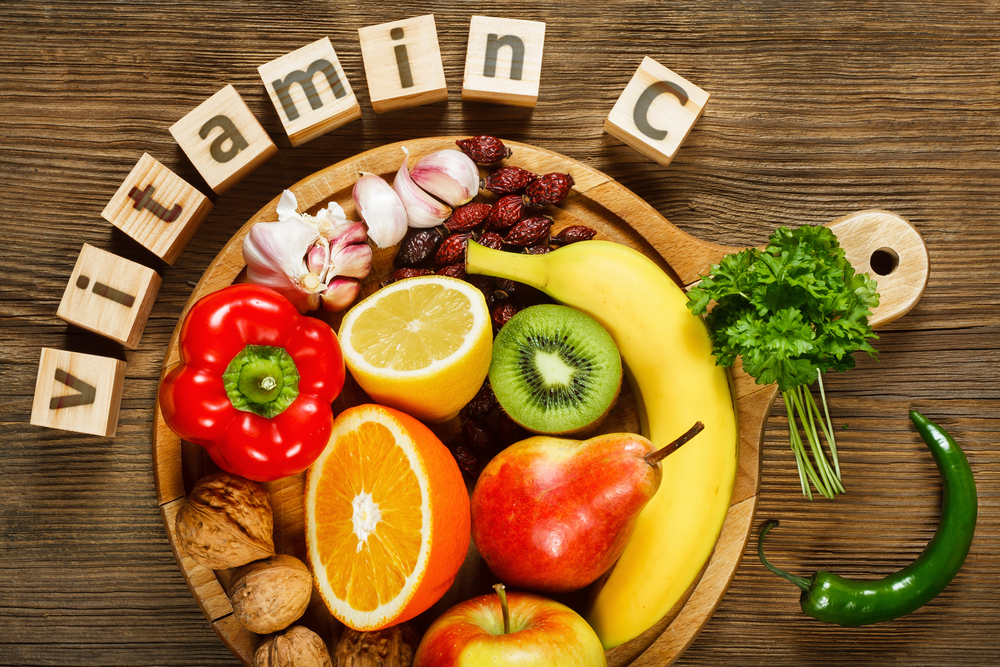
- Vitamin C: An important antioxidant in your body that helps strengthen skin. It is particularly important in the synthesis and maintenance of collagen. Vitamin C deficiency leads to a condition called scurvy, where the loss of collagen leads to fragile and irregular skin, bleeding gums, and hair loss among many other issues.
Foods high in Vitamin C: Citrus, bell peppers, tomatoes, cruciferous vegetables (broccoli, Brussels sprouts, cabbage, and cauliflower), potatoes, strawberries
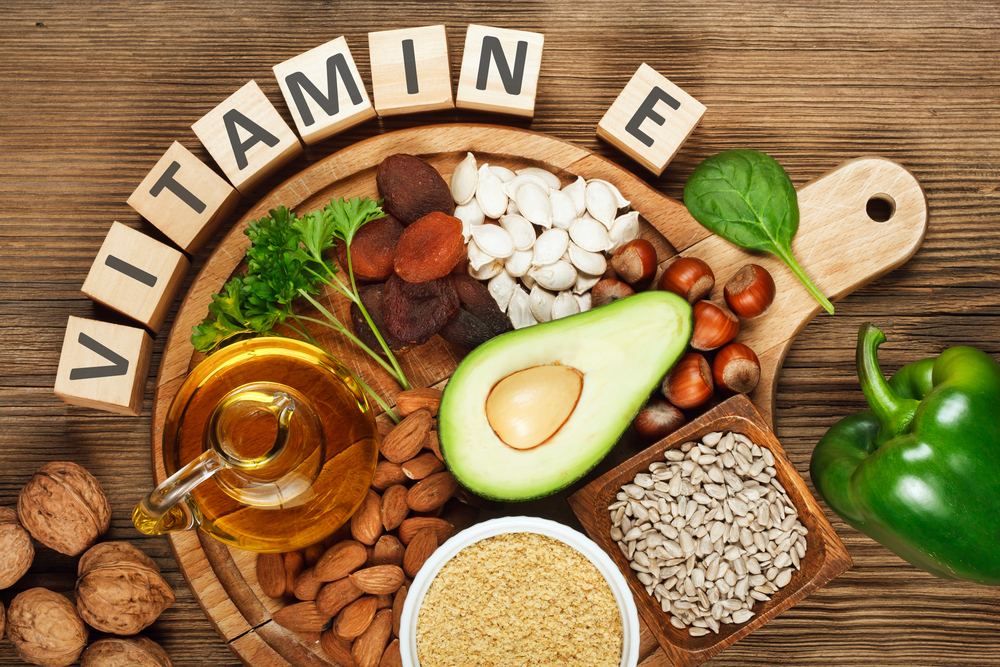
- Vitamin E: Another powerful antioxidant. Studies suggest it is apart of your skin’s natural structure to protect against damage. Thought to provide benefits like photoprotection (sun damage), firming, hydrating, as well as improving the elasticity, structure and softness of your skin.
Foods high in Vitamin E: Sunflower seeds, almonds, peanuts, collard greens, spinach, pumpkin, red bell peppers
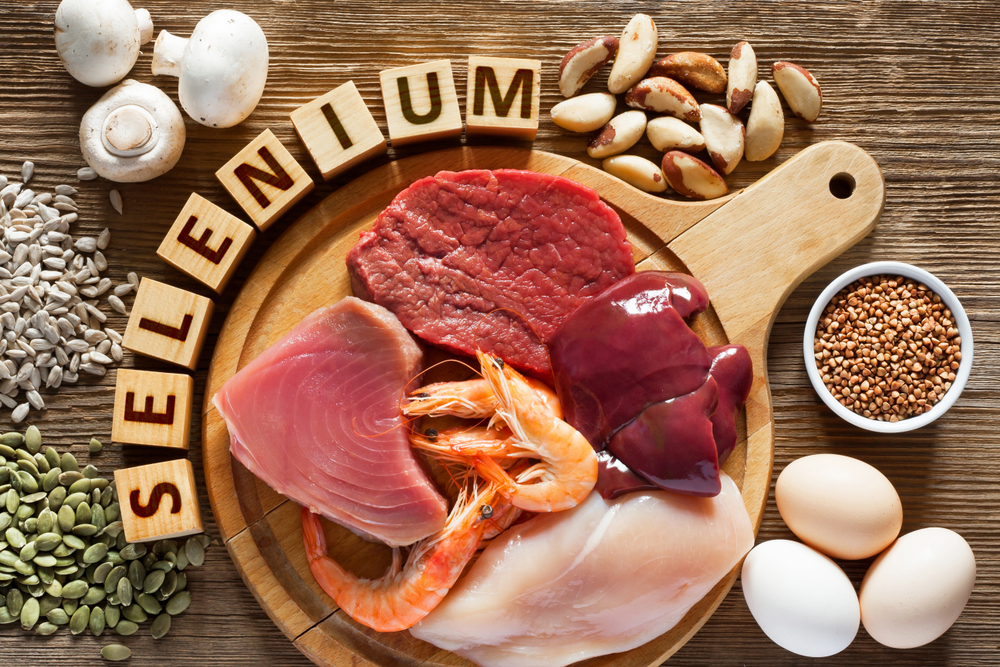
- Selenium: A mineral element that, though only needed in small amounts, is critical for many different functions. It is used by enzymes in your skin which work to protect against UVB damage.
Foods high in Selenium: Seafood, bread, poultry, Brazil nuts, white grapefruit
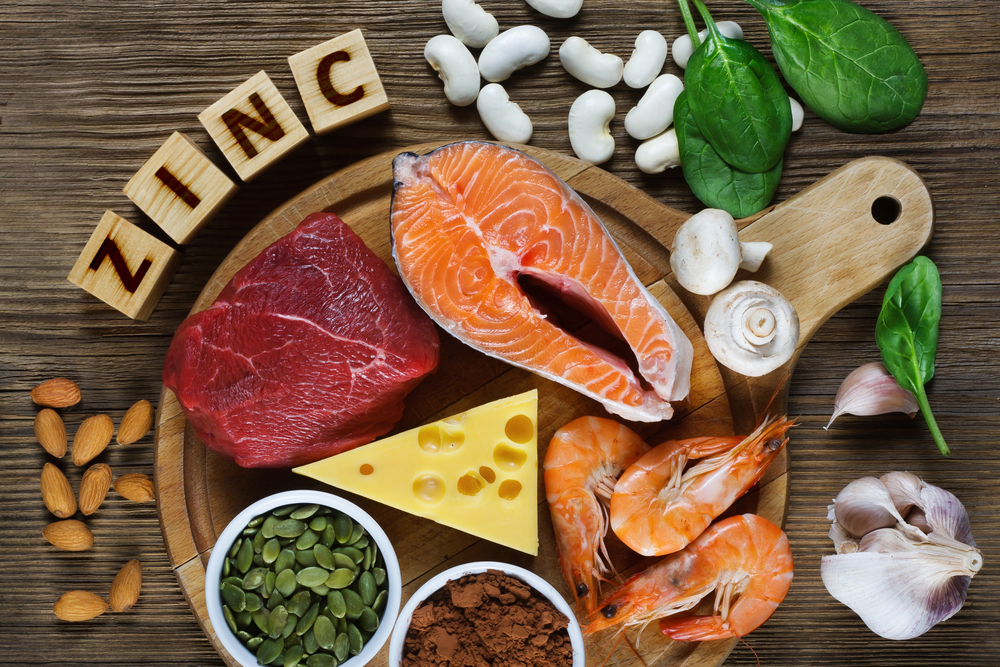
- Zinc: Another mineral element. It plays a role in regulating many cellular processes including metabolizing fats and proteins as well as DNA synthesis. It is essential for the production of new cells and maintaining the stability of all layers of the skin.
Foods high in Zinc: Legumes, lentils, rock oysters, beans, Greek yogurt, cashews, almonds, rolled oats, pumpkin seeds, beef, some cereals
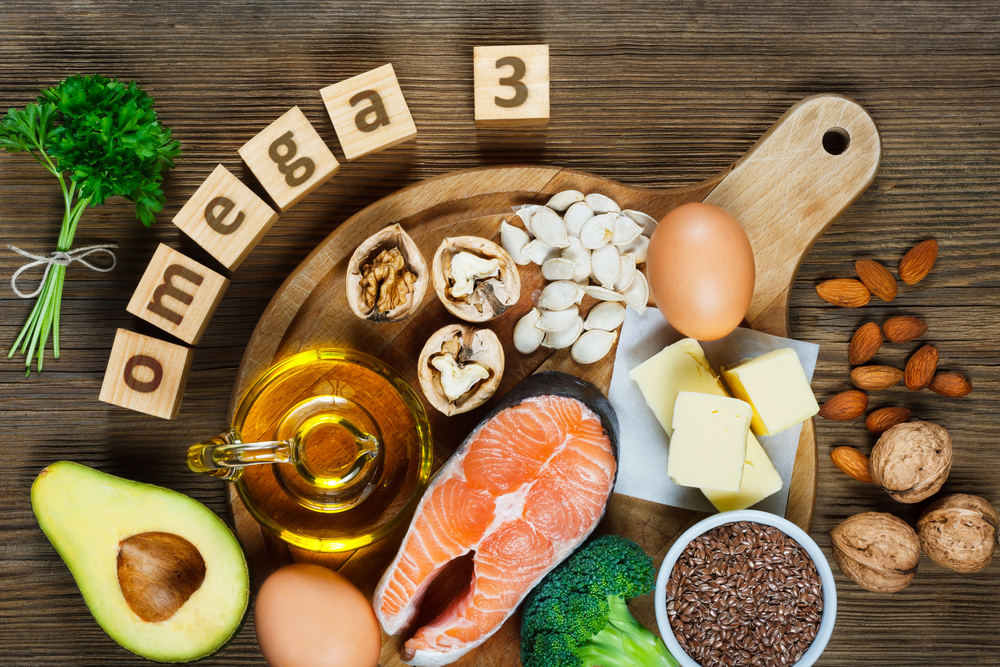
- Omega-3s: Omega-3s are a type of unsaturated fat essential to our body’s function. They have numerous proven health benefits and are important for skin health as well. Omega-3s act as the “glue” that keeps the skin’s structure together and are necessary for skin to function as a water-tight barrier. Deficiency causes excessive water loss, leading to severe dry skin and inflammation.
Foods high in Omega-3s: Mackerel, salmon, cod liver oil, tuna, sardines, trout, herring, chia seeds, flax seeds, walnuts, soybeans
This is only a partial list. Suffice to say, your skin is dependent on YOU providing a wide variety of vitamins, minerals, and nutrients in order to function optimally. That is why a diet that is full of foods which aren’t nutritious will lead to accelerated skin degeneration. It is the difference between a fast-food hamburger (full of preservatives, saturated-fat, and not much else) and a piece of salmon (packed with tons of vitamins, minerals, proteins, and healthy fats).
The Bottom Line
Following a Mediterranean diet meal plan emphasizes eating more fruits, vegetables, healthy fats like fish and olive oil, whole grains, nuts, and legumes. All these food categories are excellent for reducing inflammation in your body by downregulating or “calming down” your overactive immune system.
Additionally, the diet limits how much red meat, preservatives, and added sugars that you consume. These all contribute substantially to how much inflammation you have in your body. When combined, this diet leads to far less inflammation. In turn, this means less damage to your skin’s critical cells and structures, and therefore less visible signs of aging.
